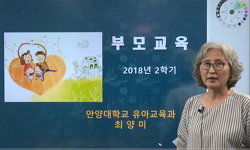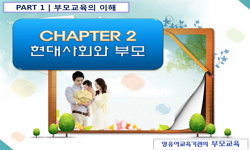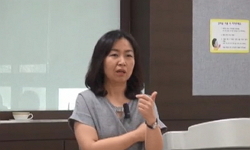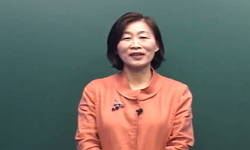본 연구는 유아기 자녀를 둔 부모의 양육스트레스와 부모교육 요구에 대해 조사하고 양육스트레스와 부모교육 요구와의 관계를 알아보고자 하였다. 그러한 연구 목적에 따라서 제기된 연구...
http://chineseinput.net/에서 pinyin(병음)방식으로 중국어를 변환할 수 있습니다.
변환된 중국어를 복사하여 사용하시면 됩니다.
- 中文 을 입력하시려면 zhongwen을 입력하시고 space를누르시면됩니다.
- 北京 을 입력하시려면 beijing을 입력하시고 space를 누르시면 됩니다.
유아기 자녀를 둔 부모의 양육스트레스와 부모교육에 대한 요구 = Parenting Stress of Parents with Young Children and their Demands as Pertains to Parent Education
한글로보기https://www.riss.kr/link?id=T12915647
- 저자
-
발행사항
창원 : 경남대학교 교육대학원, 2012
-
학위논문사항
학위논문(석사) -- 경남대학교 교육대학원 , 유아교육전공 , 2012. 8
-
발행연도
2012
-
작성언어
한국어
- 주제어
-
발행국(도시)
경상남도
-
형태사항
87 ; 26 cm
-
일반주기명
지도교수: 제경숙
- 소장기관
-
0
상세조회 -
0
다운로드
부가정보
국문 초록 (Abstract)
1. 유아기 자녀를 둔 부모의 양육스트레스는 어떠한가?
2. 유아기 자녀를 둔 부모의 부모교육 요구는 무엇인가?
3. 유아기 자녀를 둔 부모의 양육스트레스와 부모교육 요구와의 관계는 어떠한가?
본 연구를 위해 경상남도 진주시 A, B, C 유치원에 다니는 만 3~5세 유아의 아버지와 어머니를 대상으로 양육스트레스와 부모교육요구에 대해 알아보았다. 양육스트레스 검사는 Abidin의 Parenting Stress Index/Short Form을 사용하였고, 부모교육 요구조사지는 정문자ㆍ어주경(1997)의 부모교육 요구 척도를 일부 수정하였다.
아버지용 질문지와 어머니용 질문지를 1세트로 하여 총 400부의 설문지를 배부하였고, 최종 311부의 질문지를 연구 자료로 사용하였다. 수집된 자료는 SPSS 14.0에 코딩하여 분석, 일원배치변량분석(One-way ANOVA), 상관분석, 독립표본 t검정(independence ttest), 대응표본 t검정(Paired ttest)을 실시하였다.
본 연구의 결과를 요약하면 다음과 같다.
첫째, 어머니와 아버지의 양육스트레스는 양쪽 모두 높지 않았고, 정적 상관관계가 있는 것으로 나타났다.
둘째, 부모교육에 대한 요구가 매우 높았으며 모든 문항에 대한 부모교육 요구도는 어머니가 아버지보다 높게 나타났다.
셋째, 부모의 양육스트레스와 부모교육 요구도는 유의한 상관관계가 나타나지 않았다.
본 연구는 유아기 자녀를 둔 부모의 양육스트레스와 부모교육 요구에 대해 조사하고 양육스트레스와 부모교육 요구와의 관계를 알아보고자 하였다. 그러한 연구 목적에 따라서 제기된 연구 문제는 다음과 같다.
1. 유아기 자녀를 둔 부모의 양육스트레스는 어떠한가?
2. 유아기 자녀를 둔 부모의 부모교육 요구는 무엇인가?
3. 유아기 자녀를 둔 부모의 양육스트레스와 부모교육 요구와의 관계는 어떠한가?
본 연구를 위해 경상남도 진주시 A, B, C 유치원에 다니는 만 3~5세 유아의 아버지와 어머니를 대상으로 양육스트레스와 부모교육요구에 대해 알아보았다. 양육스트레스 검사는 Abidin의 Parenting Stress Index/Short Form을 사용하였고, 부모교육 요구조사지는 정문자ㆍ어주경(1997)의 부모교육 요구 척도를 일부 수정하였다.
아버지용 질문지와 어머니용 질문지를 1세트로 하여 총 400부의 설문지를 배부하였고, 최종 311부의 질문지를 연구 자료로 사용하였다. 수집된 자료는 SPSS 14.0에 코딩하여 분석, 일원배치변량분석(One-way ANOVA), 상관분석, 독립표본 t검정(independence ttest), 대응표본 t검정(Paired ttest)을 실시하였다.
본 연구의 결과를 요약하면 다음과 같다.
첫째, 어머니와 아버지의 양육스트레스는 양쪽 모두 높지 않았고, 정적 상관관계가 있는 것으로 나타났다.
둘째, 부모교육에 대한 요구가 매우 높았으며 모든 문항에 대한 부모교육 요구도는 어머니가 아버지보다 높게 나타났다.
셋째, 부모의 양육스트레스와 부모교육 요구도는 유의한 상관관계가 나타나지 않았다.
다국어 초록 (Multilingual Abstract)
1. What is the parenting stress of parents with young children?
2. What are the demands of parents as pertains to parent education?
3. What is the relationship between the parenting stress of parents and their demands for parent education?
The parents of children from 3~5-year-old classes in A, B, and C kindergartens located in Jinju city in Gyeongnam Province were selected to take part in this study on parenting stress and the demand for parent education. While the Parenting Stress Index/Short Form developed by Abidin was introduced to measure parenting stress, the Evaluation Scale of Parent Education Demands developed by Jeong Mun-ja and Eo Ju-gyeong (1997) was, after a partial modification, introduced to measure the demands for parent education.
A total of 400 surveys which consisted of questions for both the mother and father were distributed. 311 of these surveys were used as the study materials. The collected data was coded and analyzed based on the SPSS 14.0, and then a One-way ANOVA, correlation analysis, independent t-test, and paired t-test were conducted.
The study results can be summarized as follows.
First, the parenting stress of both mothers and fathers was not very high, with a static correlation uncovered between the two.
Second, the demand for parent education was found to be very high. In this regard, mothers exhibited a higher demand for parent education than fathers.
Third, no significant relationship between parenting sress and the demand for parent education was uncovered.
This study analyzes the parenting stress of parents with young children and their demands as pertains to parent education as well as the relationship between parenting stress and the demands for parent education. To this end, the following questions w...
This study analyzes the parenting stress of parents with young children and their demands as pertains to parent education as well as the relationship between parenting stress and the demands for parent education. To this end, the following questions were posed.
1. What is the parenting stress of parents with young children?
2. What are the demands of parents as pertains to parent education?
3. What is the relationship between the parenting stress of parents and their demands for parent education?
The parents of children from 3~5-year-old classes in A, B, and C kindergartens located in Jinju city in Gyeongnam Province were selected to take part in this study on parenting stress and the demand for parent education. While the Parenting Stress Index/Short Form developed by Abidin was introduced to measure parenting stress, the Evaluation Scale of Parent Education Demands developed by Jeong Mun-ja and Eo Ju-gyeong (1997) was, after a partial modification, introduced to measure the demands for parent education.
A total of 400 surveys which consisted of questions for both the mother and father were distributed. 311 of these surveys were used as the study materials. The collected data was coded and analyzed based on the SPSS 14.0, and then a One-way ANOVA, correlation analysis, independent t-test, and paired t-test were conducted.
The study results can be summarized as follows.
First, the parenting stress of both mothers and fathers was not very high, with a static correlation uncovered between the two.
Second, the demand for parent education was found to be very high. In this regard, mothers exhibited a higher demand for parent education than fathers.
Third, no significant relationship between parenting sress and the demand for parent education was uncovered.
목차 (Table of Contents)
- 국문요약
- Ⅰ. 서 론 = 1
- 1. 연구의 필요성 = 1
- 2. 연구 문제 = 3
- Ⅱ. 이론적 배경 = 4
- 국문요약
- Ⅰ. 서 론 = 1
- 1. 연구의 필요성 = 1
- 2. 연구 문제 = 3
- Ⅱ. 이론적 배경 = 4
- 1. 양육스트레스 = 4
- 2. 부모교육 요구 = 7
- Ⅲ. 연구 방법 = 10
- 1. 연구대상 = 10
- 2. 연구도구 = 11
- 3. 연구절차 = 13
- 4. 자료분석 = 14
- Ⅳ. 연구결과 및 해석 = 16
- 1. 부모의 양육에 대한 인식과 양육스트레스 = 16
- 2. 부모교육 요구 = 28
- 3. 부모의 양육스트레스와 부모교육 요구도와의 상관관계 = 43
- Ⅴ. 논의 및 결론 = 45
- 1. 논의 = 45
- 2. 결론 = 47
- 참고문헌 = 49
- 부 록 = 51
- ABSTRACT = 86












